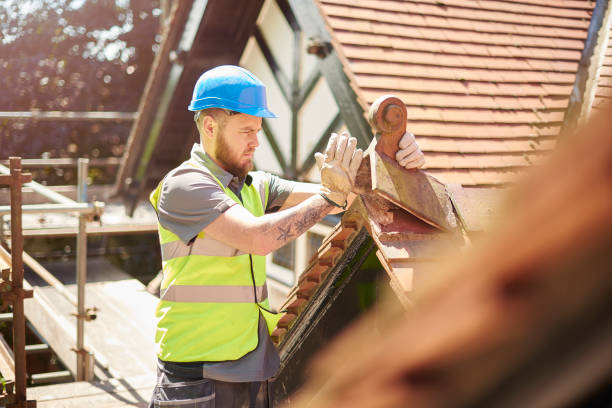Are you about to embark on a new building project? Are you concerned about the likelihood of accidents or site damage?
You may be wondering what happens if someone is hurt while working on a loft conversion or how you would pay for damages if a fire occurs.
It is critical to have the proper insurance policy in place to ensure that you have the necessary coverage and compensation.
In this piece, you’ll learn about what insurance my builder should have in 2023, the several types of insurance policies that most builders provide, and what each one is for.
What insurance should my builder have? : Types of Builder’s Insurance
1. Public Liability Insurance
What Insurance Should My Builder Have? Public liability insurance This is crucial for builders, as it covers third-party injuries or property damage that may occur during the construction process.
This includes accidents involving clients, subcontractors, or even members of the public. It ensures that if someone is injured or their property is damaged, the builder is protected from potential legal and financial repercussions.
Also Read When Must Your Vehicle Have Valid Insurance Cover in 2023
2. Contract Works Insurance (Construction All Risks Insurance)
This type of insurance is specifically designed for construction projects. It covers loss or damage to the building works, materials, and equipment during the construction process.
Whether it’s damage from fire, theft, vandalism, or natural disasters, contract work insurance provides comprehensive coverage to safeguard the project from unexpected setbacks.
3. Employer’s Liability Insurance
Builders often have a team of workers involved in the construction process. Employer’s liability insurance is a legal requirement in many places, and it covers the builder against claims from employees for injuries or illnesses sustained while working on the project. It’s a crucial component for ensuring a safe and secure working environment.
Read More Combined Car and Home Insurance: Everything You Should Know
Importance of Builder’s Insurance
Ensuring that the builder has the right insurance is not just a legal requirement but a fundamental aspect of responsible construction management. Here’s why:
- Legal Compliance: Many regions mandate builders to have specific types of insurance. Failing to comply with these requirements can result in legal consequences, fines, or even the halting of the construction project.
- Financial Protection: Construction projects involve substantial investments. Builder’s insurance provides financial protection by covering the costs associated with accidents, damages, or legal claims. Without insurance, the builder may bear these costs personally, leading to financial strain.
- Risk Mitigation: Construction sites are inherently risky environments. With heavy machinery, sharp tools, and numerous workers, accidents can happen. Insurance helps mitigate these risks, ensuring that the builder is prepared for unforeseen events that could otherwise jeopardize the project.
Frequently Asked Questions: What insurance should my builder have?
Is builder’s insurance mandatory?
Yes, in many regions, builder’s insurance, particularly public liability and employer’s liability insurance, is mandatory. It’s essential to check local regulations to ensure compliance.
Can builders tailor their insurance coverage?
Absolutely. Builders can work with insurance providers to tailor coverage based on the specific needs of their projects. This flexibility ensures that they are adequately protected.
How Does Builder’s Insurance Impact Project Timelines?
Builder’s insurance is designed to minimize disruptions. In the event of an unforeseen incident, insurance can expedite the resolution process, allowing the project to stay on track.
Are there differences in insurance requirements for residential and commercial builders?
The insurance requirements may vary based on the scale and nature of the project. Commercial builders often deal with larger projects, and accordingly, their insurance needs might differ.
What steps can builders take to lower insurance premiums?
Builders can implement safety measures, invest in training for their team, and maintain a good track record to demonstrate to insurers that they are low-risk clients. This can contribute to lower insurance premiums.
Is it necessary for your home insurance company to know if you’re having work done on your property?
It is strongly advised that consumers notify their house insurance carriers when they have work done on their residences. This is because certain restrictions may be imposed on your policy, resulting in increased fees.
Failure to notify a home insurance provider may result in policy cancellation.
Don’t be scared to inquire about your builder’s insurance policy. There is nothing wrong with seeking confirmation. A builder should, at the very least, have employers’ liability insurance because it is a legal requirement for enterprises with at least one employee.
The absence of any insurance policy should raise a red flag. Avoid contractors who cannot verify their work.
How do I find out if my builder is insured?
It’s straightforward. Simply inquire with the builder. Reputable builders will be pleased to share all of their insurance options. Some will even list them on their websites.
You can determine whether a builder has insurance by contacting the business that provided the insurance.
What should I do if my builder refuses to produce proof of insurance?
If you’re uncomfortable, your only option is to choose another constructor. There’s no reason why a builder wouldn’t want to disclose his insurance documentation. Consider it a red signal and begin looking for an alternative if he or she insists on now exhibiting insurance policies.
Conclusion
What insurance should my builder have? Builder’s insurance is a critical aspect of construction management that should not be overlooked.
From legal compliance to proactive risk management, the benefits of having the right insurance coverage are manifold.
Builders should carefully assess their project’s needs and work closely with insurance providers to tailor coverage that ensures a smooth and secure construction process.
Ultimately, investing in insurance is an investment in the success and longevity of the builder’s business.







